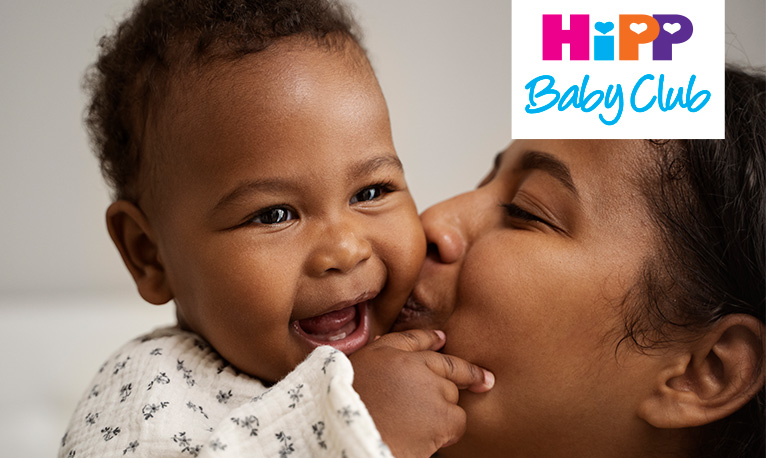Easy Eco Swaps
Wellbeing |
Many of us want to do our bit for the environment. Especially as new parents. But knowing where to start can be hard (when you’re sleep deprived and your brain is full to bursting with an overload of baby information).
The good news is, there are lots of little things you can do that will make a big difference to the world around your baby. Why not give one of our suggestions a go for a few weeks, you might be surprised how simple they are.
10 simple ways to be more eco
From adding eco-friendly products to your shopping list to ditching non-recyclable single use items, our list of eco swaps can help you get started:
1. Swap wet wipes for cloth wipes
Life without this seemingly essential hand/face/everywhere else cleaner may sound inconceivable. But it’s totally do-able. Just wet & wring out before use AND they’re washable, so you can use them over and over again.
Just this relatively simple swap can make a difference to the planet, it’s time to say goodbye to the single use items that sit in landfill for centuries.
2. Swap plastic beakers for plastic-free beakers
A lot of thought goes into choosing your baby’s first beaker. The shape, handles, mouth piece, even colour. But there’s another important element to consider; the material it’s made from.
Plastic-free is the ideal choice for your little one. Many earth friendly baby brands offer bottles, beakers or cups for every stage made from glass, stainless steel or silicone. So why not consider one of these eco alternatives?
3. Swap plastic tableware for bamboo tableware
Mealtimes with a baby can be a little like feeding time at the zoo. So, it’s hardly surprising that parents opt for bounce-resistant plastic plates, bowls and cutlery. But did you know, bamboo is a popular alternative? It looks and feels a lot like plastic. But this naturally anti-bacterial and anti-microbial material is free from the potentially harmful chemicals, like BPA, found in plastic.

4. Swap clingfilm for silicone snack bags
Handy as it is, clingfilm is one of the worst eco-offenders when it comes to unnecessary plastic. Luckily, there are plenty of alternatives for keeping your sandwiches and finger foods fresh (and in one place when you’re out and about!) Beeswax wraps and silicone snack bags are widely available and make a great, reusable alternative to clingfilm.
5. Swap plastic food boxes for glass or silicone containers
Plastic-free is the way to go for a more eco existence. So instead of stocking up on Tupperware, think outside the box. Glass Mason jars, Pyrex dishes, silicone snack boxes, or even empty jam jars are good alternatives. You might even have some stashed away in your kitchen cupboards already...
6. Choose organic food and follow on milk
We all know that organic farming is tons better for the environment, using natural pest control methods rather than pesticides, but did you know that organic animals have better lives too? Sensitive, traditional farming methods are used, allowing animals to graze outside, eating a natural diet with not a GM ingredient in sight, and are not routinely fed hormones or antibiotics. Soil quality is better, nothing is wasted but is reused somewhere else on the farm. So choosing organic could be the simplest and easiest eco-swap you make.
7. Swap grab and go food for considered purchases
We’ve all done it - missed a mealtime because we’re out and about having too much fun... That’s when shop bought baby food comes into its own. Many of the choices available are healthy and nutritious for our little ones. So, what’s a good eco baby choice?
If you’re looking for a complete baby meal, head to the baby food jars, like our HiPP Organic Jars. Not only are they crammed with the juiciest, yummiest organic ingredients, they’re heat sealed for freshness in glass jars and you can recycle your empties at the kerbside.

8. Swap plastic teethers for silicone teethers
As if teething isn’t tough enough already, many teethers on the market are made from plastic. So, you can’t be sure they’re BPA free. To avoid this extra pain, opt for one that’s made from silicone, natural rubber or wood, and is free from chemicals.
9. Swap plastic toys for wooden toys
Bright, shiny plastic toys with flashing lights and catchy sing-a-long tunes might be the stuff of dreams for your little one. But they’re a nightmare for the environment, because most of them end up as landfill. Wooden toys are charming, durable, and a lot prettier than their plastic counterparts - especially when they’re scattered across your lounge floor!
10. Swap new clothes for second-hand
There’s a saying that goes “if you buy cheap, you buy twice.” While it’s tempting to buy heaps of adorable clothes for your little one, helping to maintain the fashion industry is bad news for the planet (and your pocket!) So why not think about buying second-hand.



